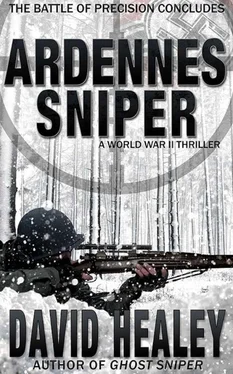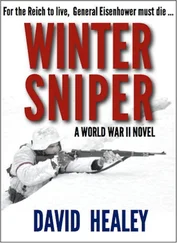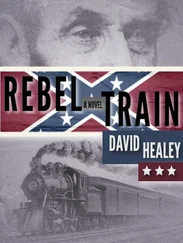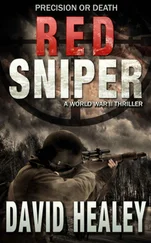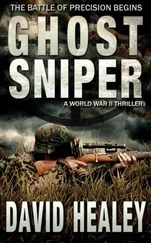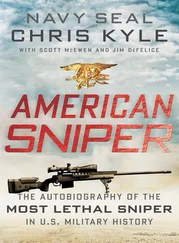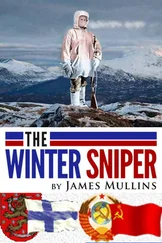His driver came over. “They were going to shoot him.”
“Yes.”
“I was not sure they were going to listen to you, Herr Hauptmann.”
“But they did. That man is a good German. He fought in the Great War.”
“Then you did the right thing, although it hasn’t won you any friends.”
To Von Stenger’s surprise, the confrontation at the house had drawn Friel’s attention. The SS commander dodged between the rolling tanks to cross the village street.
“What was that all about?” he asked.
“Just an old man who wanted to join up and help us win the war.”
“Ha, ha! That’s the spirit.” Friel looked at the tavern, from which flames were just beginning to lick the sky, and then at Von Stenger. “I can see you don’t approve. But let me tell you something. The last time I was in Germany a month ago, I was there when the Allies bombed Kiel. I saw little schoolgirls reduced to bloody smears on the wall. That is what war has become. So please save your silent judgments for someone else, Herr Hauptmann.”
Friel had cold blue eyes. Von Stenger met them. He had dismissed Friel previously as just another believer, a Nazi fanatic. He could see now in those eyes that Friel was not only fiercely intelligent, but that he had the soul of a glacier. Von Stenger knew he had better be careful from now on. “No one needs to tell me what war has become, but that does not mean one has to enjoy this kind of excess. A good soldier does his duty.”
“Good.” Friel’s easy smile returned and he clapped Von Stenger on the shoulder. “Then do yours, Kurt. Start killing some Americans with that fancy rifle of yours.”
At that, Friel returned to his waiting tank. Somehow, the Nazi officer managed to make even crossing the muddy street look like he was marching on a parade ground.
Von Stenger got back in the Volkswagen. “How was your sandwich?” he asked the driver.
“Good, sir.”
“Drive us out to the head of the column,” he said. He stopped short of adding, I need a break from these SS bastards.
“Yes, Herr Hauptmann.”
They drove out, passing tanks and dodging trucks. For all of Friel’s cajoling about keeping to the schedule, the column did not seem to move at much more than a snail’s pace. They reached the woods, and trees pressed in close to the edge of the road. In fact, it was almost like passing through a tunnel. Coming up, he could see where the woods ended and the road came out into an open field. Perfect place for an ambush.
“Pull over up here,” he told the driver.
The driver did as ordered, and Von Stenger climbed out. He slipped on a white poncho and pulled a white covering over his helmet. Quickly, he wrapped his rifle in a strip of white cloth. He would now blend easily into the winter woods.
“What do you want me to do, sir?” the driver asked.
“Come with me and keep quiet.”
They started off into the woods. The head of the column was just entering the copse — the roar of diesel engines and clank of tank treads had shattered the wintry stillness. And yet there was something comforting about being away from the column. As a sniper, he was used to operating by himself and he missed that after being assigned to Friel’s Kampfgruppe. Not for the first time, he was glad that although he held the rank of officer — rank did have its privileges, such as being driven around in a Schwimmwagen — he was not in charge of anyone but himself. He did all he could to keep things that way.
He pressed deeper into the woods. The snow had settled on top of a layer of leaves, so that with each step his boots sank several inches. Walking just a few hundred yards was exhausting, and yet that’s just what he did now, moving away from the road and toward the tree line where the woods met the field. His driver struggled to keep up. The crunch of leaves and snow underfoot made it almost impossible to be silent, but he was not too concerned about that because the growing noise of the mechanized column would drown out any sound they made.
He would have liked some height in order to get a better view of the field, but there wasn’t really time for him to get into a tree. Instead, he found a windfall that had caught in another tree, so that it was a couple of meters above the forest floor. He climbed the sharply angled trunk of the deadfall and was rewarded with a glimpse of the open field beyond. He straddled the deadfall and positioned his rifle between the fork of the tree that the deadfall had lodged in.
The field spread out before him. But he did not just see it as a wintry plain more than a mile across, crisscrossed by stone fences, hedgerows, and a snow-covered road. He saw it the way that a chess master saw a chessboard — as a playing field to be assessed for every strength and weakness, and where one false move could mean defeat. Although the snowy fields appeared empty, Von Stenger was certain that they were not.
He was sure that Kampfgruppe Friel was rolling into an ambush. Von Stenger put his eye to the scope of his rifle. He was just as certain that he could bring that ambush to a quick end.
All he needed was a target. Eye pressed against the scope, he bided his time.
“Look at that smoke,” Vaccaro said, nodding to a dark spiral against the gray sky. “The Krauts are up there torching something. I feel sorry for the poor bastards they caught up with.”
“They must have slowed down. The way they’ve been moving, I thought they would be back in Paris by now.”
For the past hour, the snipers had been following the tracks left by the German column. The passage of the heavy panzers and trucks had broken through the crust of frozen snow and mud and churned up the road, which was now a muddy swath through the snowy countryside. As much as possible, the snipers kept out of the mud and walked in the fields in hopes of keeping their boots dry, but it wasn’t always possible where the road narrowed.
“We don’t even need Cole to track these bastards,” Vaccaro said. “My grandma could follow this column, and she’s half blind and fat as a pickle barrel.”
Although they were on foot, there was a chance they might catch the rear of the advancing German column. The slower vehicles, and those that became bogged down in the mud, would be left behind. One thing was clear, however, which was that the Germans were more interested in advancing than in holding any territory. So far, they hadn’t left any forces behind.
Aside from the mud, the smoke was the first sign that there were Germans up ahead. There hadn’t been so much as the sound of a gunshot since they had left the massacre site, which meant the German column was advancing unopposed.
Lieutenant Mulholland stopped and nodded at the spiral of smoke. The smoke was not straight ahead but slightly to their right, indicating that the road ahead turned sharply. “If we angle across these fields, I’ll bet we can come out ahead of these Germans.”
“And do what, sir?” Vaccaro asked.
“Ambush them.”
“Uh, they’ve got tanks, sir. All we’ve got are rifles. These are like BB guns against a King Tiger tank.”
“We aren’t trying to take out the tanks, Vaccaro, but their operators. It’s time we started paying those bastards back for what they did at Malmedy.”
“I can’t argue with that, sir.”
The lieutenant turned to Cole. “What are you thinking?”
Cole appeared to turn it over for a moment, then slowly nodded as he looked across the whitened fields and woods. Unlike the lieutenant, he possessed an internal compass that gave him an uncanny sense of the landscape. “I think it’s a good plan, Lieutenant. It’s a sight better than trailing along on their ass end. Even if we don’t get out ahead of them, we’ll come right out beside them. These Nazi bastards are probably thinking they’ve won the war already. Let’s teach them different.”
Читать дальше
